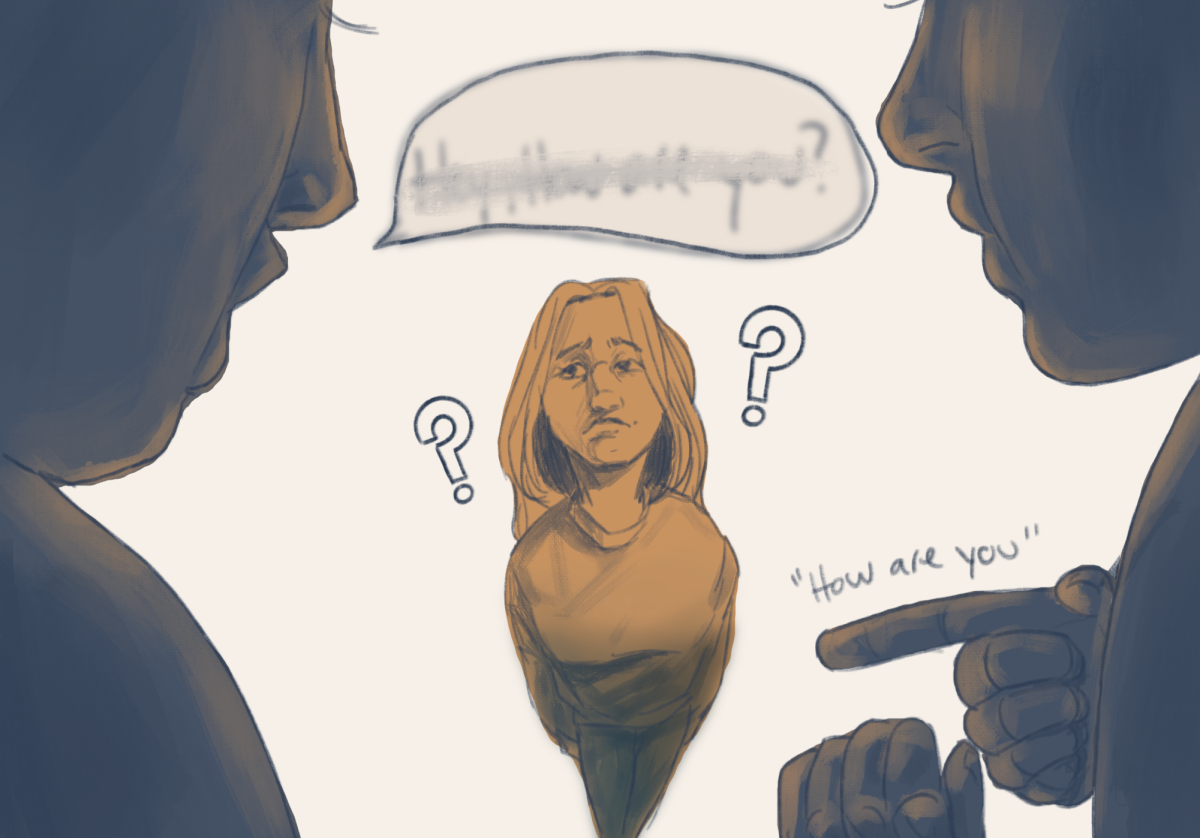I have been deaf my entire life and my hearing loss will continue to get worse. There’s no way to know how it will progress. I was raised by a hearing family, meaning I was never taught American Sign Language (ASL) or about deaf culture.
Now in my second year of college, I am still adjusting to living life deaf. As someone who was born with hearing loss and has worn hearing aids her whole life, I’m left feeling stuck between two different communities.
If my hearing loss wasn’t progressive, I probably never would have discovered the awkward position I hold between the deaf and hearing communities. However, this year it got worse. My hearing loss has progressed to the point where I have to utilize accommodations I didn’t need before. I struggle to participate in group activities as I simply can’t hear those around me, and on top of this, I don’t “seem deaf.”
When I share I have hearing loss, specifically severe hearing loss, I almost always get the response “oh I didn’t even know.” Living with a hidden disability can come across as convenient if others are unable to tell.
However, if someone doesn’t realize I’m deaf, I can come across as “dumb” or “rude” rather than disabled. I would much rather be someone who is deaf than someone who doesn’t pay attention. This discrepancy often makes me feel like I don’t fit in with the hearing community.
It’s really important to understand that there’s nothing wrong with being deaf or disabled in general. Many people tend to respond to the news of my disability with “I’m sorry”, which is a very unnecessary response as it’s just part of who I am and there’s no shame in that.
Being part of the deaf community is not quite accurate or realistic either. Being raised by a hearing family means I don’t know ASL and I don’t know how to talk to others who are deaf without holding some of the same ignorance as people without disabilities. I’m considered ‘deaf’ rather than ‘Deaf’ as I was raised outside of the deaf community by hearing parents. I’m not used to accommodating others, rather I became used to the assumption I don’t need accommodations since I don’t “seem deaf.”
What I’ve learned from this, besides the glaring ignorance that surrounds disabilities, is that being in between communities leads to an awkward pocket of isolation. I can’t hear anyone in the hearing community and when I attempt to find a place in the deaf community, their accommodation, usually the use of ASL, doesn’t work for me so I still struggle to communicate and participate.
While this has come to be due to a handful of different circumstances, having one foot in two different communities has been a challenge. Being ‘deaf’ and not ‘Deaf’ has defined a lot of my experiences and balancing between two identities has been something I am just beginning to figure out.
Rail is an English second-year from El Paso, Texas.















